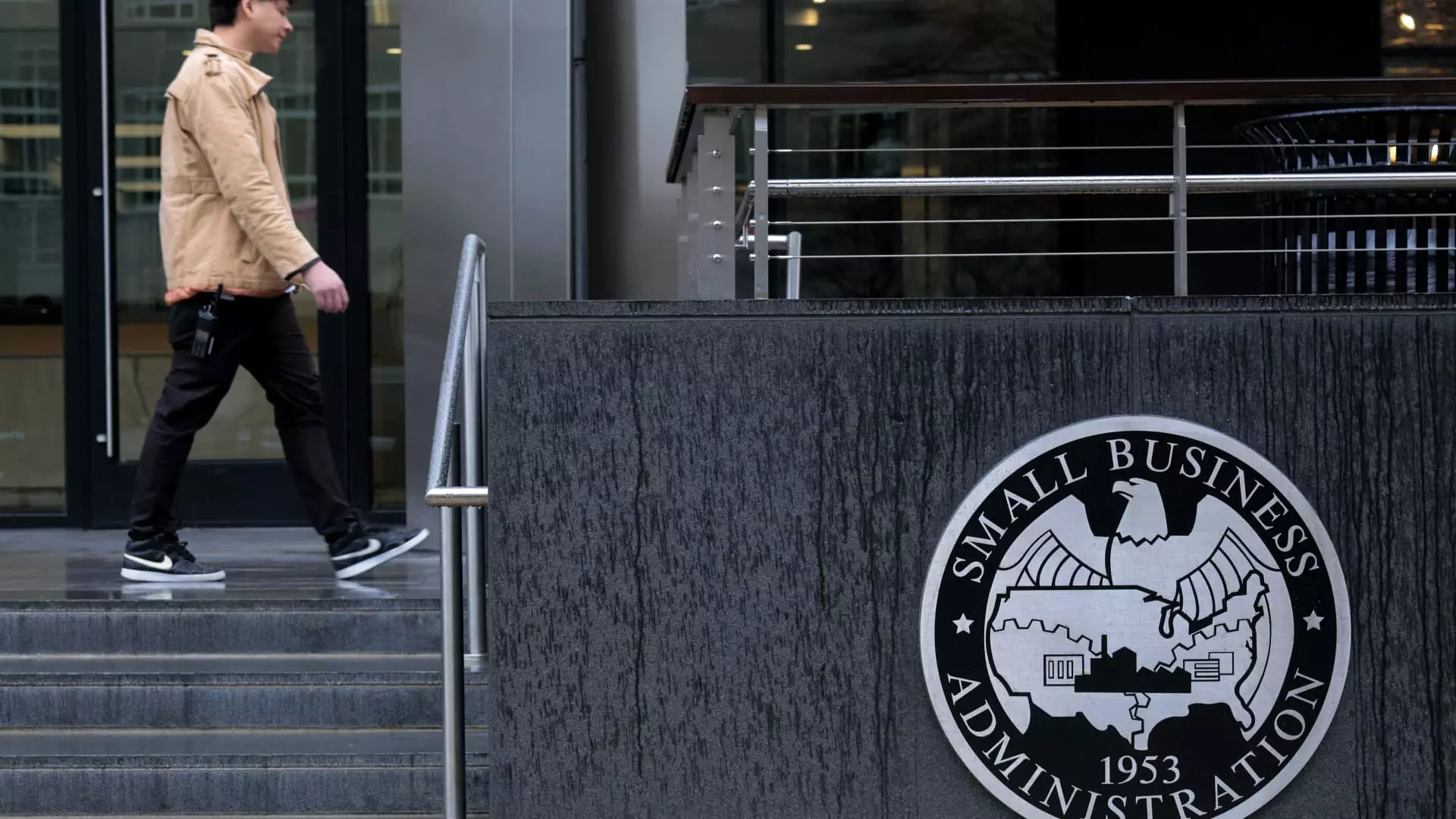In a surprising turn of events, a federal judge has thwarted President Donald Trump’s attempt to uproot the management of the nation’s $1.6 trillion student loan portfolio from the U.S. Department of Education to the Small Business Administration (SBA). U.S. District Court Judge Myong J. Joun’s preliminary injunction not only reinstated over 1,300 employees from the Education Department but also blocked what many perceive as a desperate attempt to alleviate the nation’s growing student loan crisis without the necessary foresight or expertise. The ruling is a sigh of relief for many borrowers who fear that such a monumental transition would further complicate an already convoluted system.
President Trump had set the stage for this reorganization with the bravado typical of his administration, proclaiming that the SBA was fully prepared for the transfer. Yet, the legal reality paints a different picture—one where a fundamental understanding of the intricacies of educational financing is paramount. What appears to be a lackadaisical approach to an urgent issue reveals a broader misunderstanding of the necessity for specialized governance in education matters.
The Confusion of Responsibilities
The ramifications of transferring student loan management to the SBA have been hotly debated, particularly among consumer advocates and education professionals. Organizations that champion student rights express valid concerns that such a restructuring would not streamline the loan process but would instead introduce chaos, putting borrowers at risk of losing crucial protections. With the SBA’s personnel already facing a staggering cutback of 43%, as newly announced in March, the inefficiency and ineffectiveness could only be exacerbated under a hefty workload that would, frankly, overwhelm them.
Sarah Sattelmeyer from New America argues compellingly that moving the Department of Education’s core functions would not culminate in increased efficiency; rather, it would lead to a “confusion and decreased effectiveness” in programs vital for students. The stark contrast between education and business management cannot be overstated, and transitioning these responsibilities without thorough consideration of the implications is not just misguided—it is reckless.
Privacy and Protections at Risk
Amidst the backdrop of political maneuvering, the potential risks that borrowers face under this proposed transition are significant. Consumer advocates are rightfully apprehensive about privacy breaches and operational errors that could arise from such a hurried transfer. Past experiences with smaller internal transfers have shown that even minute changes can lead to substantial difficulties—so one can only imagine the chaos that a complete agency switch would incur. The stakes are high, yet the administration’s pursuit appears misguided and shortsighted.
Furthermore, protections afforded under the Public Service Loan Forgiveness program and other initiatives could be jeopardized. The expertise necessary to navigate these waters lies fundamentally within the Education Department, which has decades of experience dealing directly with federal student loans. Transitioning that experience to a realm where such expertise is absent sounds like a recipe for disaster.
The Role of Legislative Support
In a sobering realization, moving the student loan portfolio to the SBA would require an act of Congress—a major hurdle that underscores the administration’s recklessness in attempting to sidestep established governance frameworks. The Higher Education Act of 1965 carefully mandates that student aid responsibilities lie within the Education Department, suggesting that any overhaul will need to be navigated with significant legislative support. Given the current political climate, rallying sufficient bipartisan backing for such a change appears improbable, if not impossible.
The attempt to shift paradigms without an evidence-based approach or necessary legislative grounding not only disrespects the intricate landscape of higher education financing but represents an egotistical belief that one can upend a system crafted over decades with a flick of a pen.
In the spirit of genuine reform, we must prioritize the voices of those invested in higher education, respecting the experience necessary to assist millions of borrowers as they navigate their paths forward. Abandoning thoughtful governance in favor of political theatrics does a disservice to the countless individuals relying on these programs to change their lives. Therefore, the arguments against this ill-fated endeavor are not merely about legal technicalities—they speak to the very essence of responsible governance.

